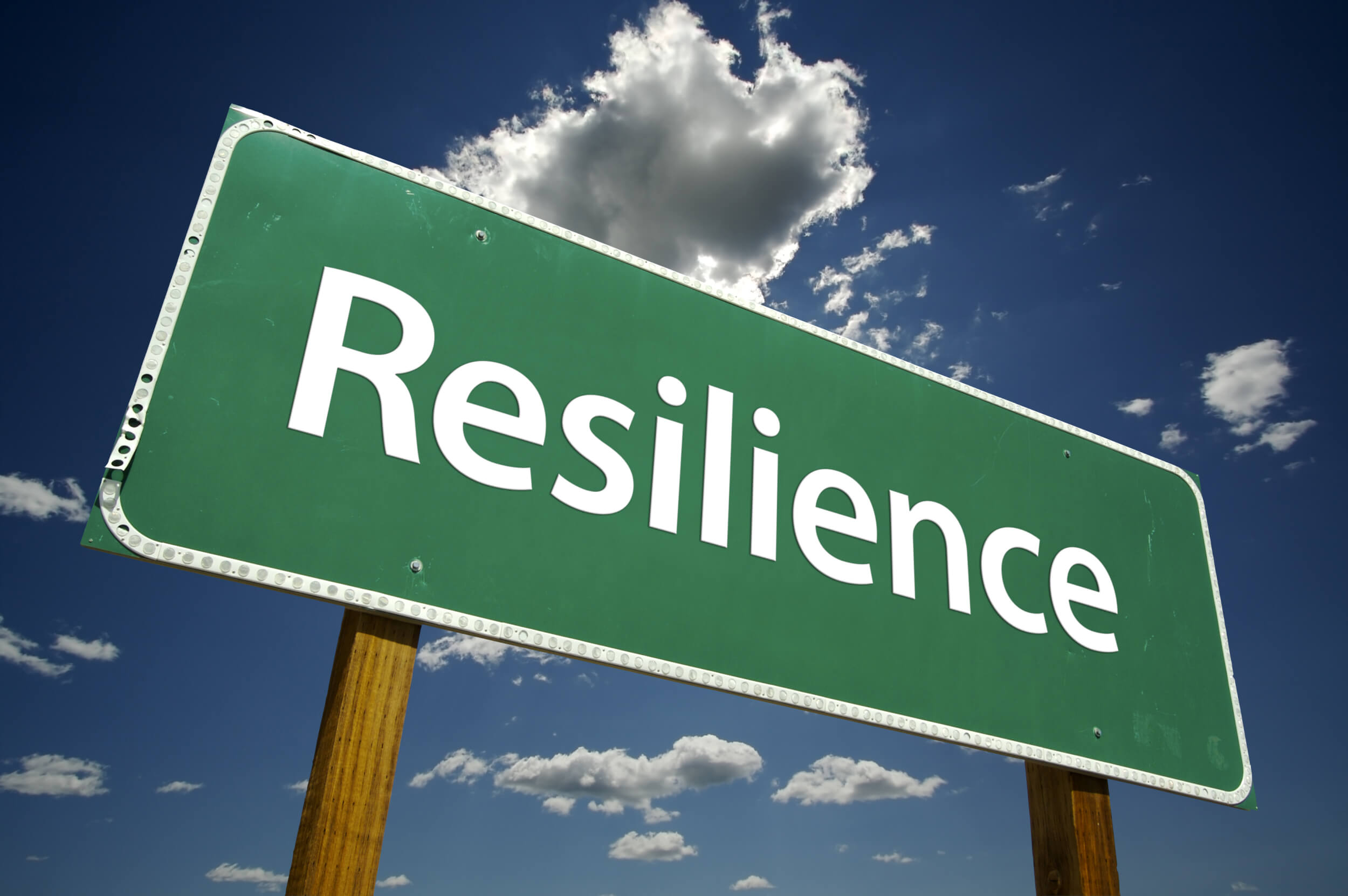Overcoming Adversity: Developing Resilience For Improved Mental Health

Table of Contents
Understanding Adversity and its Impact
Defining Adversity
Adversity encompasses a wide range of challenging experiences. These can include traumatic events like accidents or violence, significant losses such as the death of a loved one or a relationship breakdown, chronic stress from work or family pressures, and serious illnesses. The impact of adversity on mental health can be profound, leading to anxiety, depression, post-traumatic stress disorder (PTSD), and other mental health challenges. The severity of the impact depends on various factors, including the nature of the adversity, individual vulnerability, and available support systems.
- Examples of common adverse life events: Job loss, divorce, financial difficulties, bereavement, serious illness, natural disasters, accidents, violence, and betrayal.
- The psychological and physiological effects of prolonged stress: Anxiety, depression, insomnia, weakened immune system, cardiovascular problems, and digestive issues.
- The importance of recognizing and acknowledging adversity's impact: Ignoring or suppressing difficult emotions can worsen mental health. Acknowledging the impact allows for appropriate coping and healing.
Building Resilience: Practical Strategies
Cultivating a Positive Mindset
A positive mindset is a cornerstone of resilience. This doesn't mean ignoring negative emotions, but rather developing the ability to reframe negative thoughts and cultivate self-compassion.
- Techniques for practicing gratitude and mindfulness: Regularly expressing gratitude for what you have, and practicing mindfulness through meditation or deep breathing exercises, can significantly improve your mental outlook.
- Strategies for challenging negative self-talk: Identify and challenge negative thought patterns. Replace self-criticism with self-encouragement and positive affirmations.
- The importance of self-acceptance and self-care: Accepting yourself, flaws and all, is crucial. Prioritize self-care activities that nourish your physical and emotional well-being.
Strengthening Social Support Networks
Strong social connections are vital for resilience. Leaning on supportive friends, family, and community members can provide emotional buffering and practical assistance during challenging times.
- Benefits of connecting with supportive individuals: Reduces feelings of isolation, provides emotional support, and offers practical help.
- Finding and joining relevant support groups: Connecting with others facing similar challenges can foster a sense of belonging and shared experience.
- The importance of open communication and seeking professional help: Don't hesitate to reach out to trusted individuals or seek professional guidance when needed.
Developing Healthy Coping Mechanisms
Effective coping strategies are essential for managing stress and difficult emotions.
- Stress reduction techniques: Regular exercise, meditation, deep breathing exercises, yoga, and spending time in nature can help reduce stress levels.
- Healthy emotional expression: Journaling, art therapy, music, and engaging in creative activities can facilitate emotional processing.
- Setting realistic goals and prioritizing self-care: Setting achievable goals and prioritizing self-care activities help prevent burnout and promote well-being.
Seeking Professional Help
Recognizing the Need for Support
While building resilience is empowering, there are times when professional help is necessary.
- Signs and symptoms indicating the need for professional intervention: Persistent feelings of sadness, hopelessness, anxiety, anger, difficulty functioning in daily life, significant changes in sleep or appetite, and thoughts of self-harm.
- Types of mental health professionals and their specialties: Psychologists, psychiatrists, therapists, counselors, and social workers offer various therapeutic approaches.
- Finding resources and accessing mental health services: Numerous online resources and helplines offer information and support for finding mental health professionals.
Therapy and Treatment Options
Various therapeutic approaches can help build resilience and address mental health challenges.
- Cognitive Behavioral Therapy (CBT) and its benefits: CBT helps identify and modify negative thought patterns and behaviors.
- Dialectical Behavior Therapy (DBT) and its applications: DBT focuses on emotional regulation and distress tolerance skills.
- Other relevant therapeutic modalities: Other effective therapies include Acceptance and Commitment Therapy (ACT), Mindfulness-Based Cognitive Therapy (MBCT), and Eye Movement Desensitization and Reprocessing (EMDR).
Conclusion
Overcoming adversity and building resilience is a journey, not a destination. By cultivating a positive mindset, strengthening social support networks, developing healthy coping mechanisms, and seeking professional help when needed, you can significantly improve your ability to navigate life's challenges and enhance your mental well-being. Remember, self-compassion, open communication, and proactive self-care are crucial aspects of this process. Start building your resilience today! Learn more about overcoming adversity and improving your mental health by exploring resources from organizations like the Mental Health Foundation and the National Institute of Mental Health. Take that first step towards a stronger, more resilient you.

Featured Posts
-
 Trumps Bill A Major Win For Ai But Challenges Remain
May 21, 2025
Trumps Bill A Major Win For Ai But Challenges Remain
May 21, 2025 -
 The Love Monster And You A Practical Guide To Relationship Health
May 21, 2025
The Love Monster And You A Practical Guide To Relationship Health
May 21, 2025 -
 Why Is D Wave Quantum Qbts Stock Performing Poorly In 2025
May 21, 2025
Why Is D Wave Quantum Qbts Stock Performing Poorly In 2025
May 21, 2025 -
 Ependyseis Kai Metarrythmiseis Gia Tin Anaptyksi Ton Sidirodromon
May 21, 2025
Ependyseis Kai Metarrythmiseis Gia Tin Anaptyksi Ton Sidirodromon
May 21, 2025 -
 Jaw Dropping Antiques Roadshow Discovery Leads To Couples Arrest For Trafficking National Treasure
May 21, 2025
Jaw Dropping Antiques Roadshow Discovery Leads To Couples Arrest For Trafficking National Treasure
May 21, 2025
Latest Posts
-
 Arne Slot On Liverpools Victory Over Psg Alisson Beckers Crucial Role
May 22, 2025
Arne Slot On Liverpools Victory Over Psg Alisson Beckers Crucial Role
May 22, 2025 -
 Was Liverpool Lucky To Beat Psg Arne Slots Perspective On Alisson
May 22, 2025
Was Liverpool Lucky To Beat Psg Arne Slots Perspective On Alisson
May 22, 2025 -
 Building Food Businesses Lessons From A Young Louth Entrepreneur
May 22, 2025
Building Food Businesses Lessons From A Young Louth Entrepreneur
May 22, 2025 -
 Arne Slot Liverpools Lucky Win Against Psg And The Worlds Best Goalkeeper
May 22, 2025
Arne Slot Liverpools Lucky Win Against Psg And The Worlds Best Goalkeeper
May 22, 2025 -
 Local Louth Food Business Owner Offers Expertise To Other Companies
May 22, 2025
Local Louth Food Business Owner Offers Expertise To Other Companies
May 22, 2025
